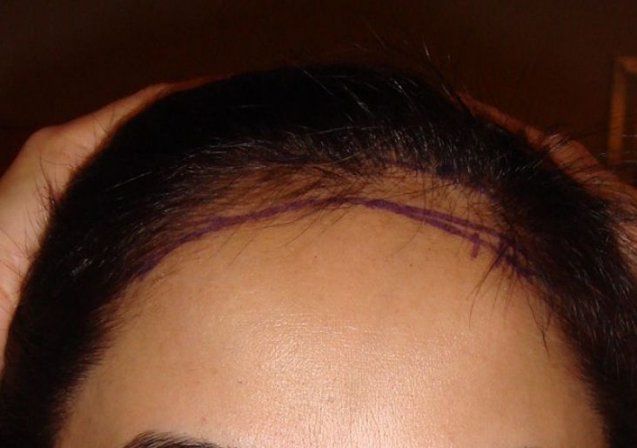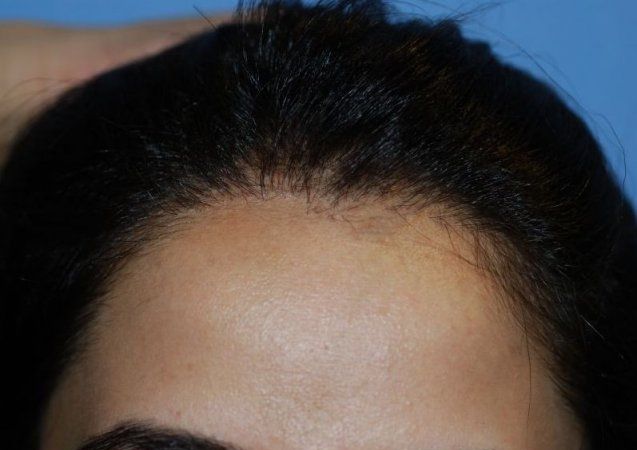Many people throughout the UK take the pill as an ongoing form of contraception. It’s often suggested by healthcare professionals in order to prevent unwanted pregnancies, but how does it work and what issues does it present?
How does the pill work?
The pill stops the production of oestrogen, which can cause eggs to be released in the ovaries. It’s one of the most effective contraceptives. However, it can cause a variety of side effects that many people worry about. After all, taking the contraceptive pill is designed to stop unwanted pregnancy, which interferes with hormones in women.
Amongst the other side effects of taking the pill, you may be wondering: Does the pill cause hair loss? Unfortunately, the pill can in fact cause the hair to thin or fall, and some women may experience contraceptive pill hair loss after they stop taking it.
Continue reading to learn more about why this is the case and what treatments you can get if hair loss is affecting you.
How can a contraceptive pill cause hair loss?
Commonly, hair will grow in cycles, which stimulates growth and regulates the strength of hair follicles. If you have a family history related to hair loss or are particularly sensitive, this is when the contraceptive pill can interrupt these cycles and cause hair loss.
Contraceptive pills can contain progestin, according to Medical News Today. Progestin is a hormone that has androgenic activity. This acts similarly to male hormones, which can cause your hair to move too quickly to its resting phase, in which large amounts of hair can fall out.
Some hair loss may be reversible if you stop taking the pill. It’s always important to speak to your doctor before you stop taking the pill to ensure it has minimal effects on your body.
Solutions to hair loss from the pill
Beyond stopping taking the pill, you may be looking for other solutions on how to stop hair loss from birth control. One of the best ways to do this is by choosing a pill that may be lower in progestin, such as the combined pill.
If you have experienced temporary hair loss, this may resolve on its own when you stop taking the pill. You could also try Minoxidil, which is commonly used to help treat female pattern baldness. However, as cited by the NHS on female hair loss, these treatments may not work for everyone and can be expensive.
Finding the best contraceptive pill for hair loss may not always be possible, as they can carry other risks with them. However, if you are worried about permanent hair loss or have already experienced it, there are some more permanent solutions to consider.
Permanent hair loss solutions
One of the most effective solutions for permanent hair loss is finding a hair loss treatment that works for you. At Crown Clinic, we have a range of treatments available for females experiencing hair loss.
Hair transplant
If you have experienced hair loss, you might want to consider a hair transplant. At Crown Clinic, we offer a range of treatments, including FUE transplants and FUT transplants. Both of these are great options if you have experienced hair loss. After a transplant, you will regain your confidence and have a fuller head of hair.
Book a free consultation today to discuss your hair transplant journey.


Other causes of female hair loss
It’s worth noting that not all hair loss in women is caused by taking the pill. Sometimes genetics can play a role in hair loss through conditions such as Androgenetic Alopecia. There are also other conditions, such as Traction Alopecia, which can cause hair loss.
Sometimes lifestyle changes can make a great impact on your hair to reduce the risk of hair loss, including avoiding smoking and reducing alcohol consumption.
Get in touch with Crown Clinic
Experiencing hair loss from taking the pill can be really stressful for women, as it plays such an important role in expression and identity. At Crown Clinic, we are here to help with a dedicated team of discreet hair transplant surgeons who can help with your condition and offer different treatments.
If you are considering a transplant, why not arrange a consultation today? We have a variety of hair transplant financing options available to suit your needs.
Contact us to get started on your hair treatment journey.